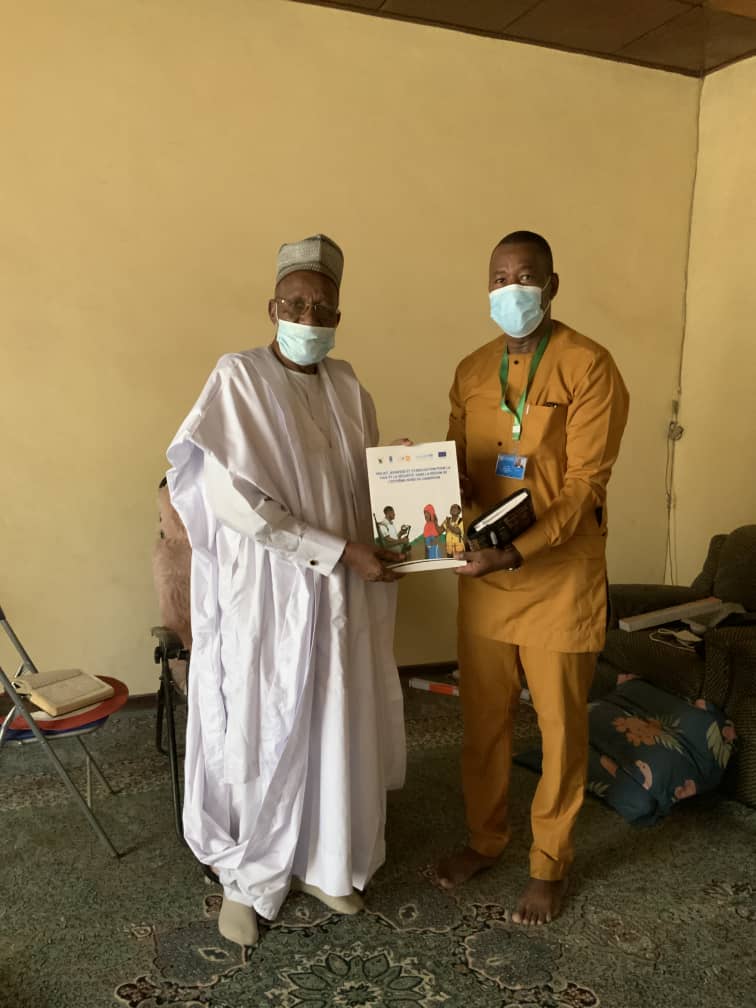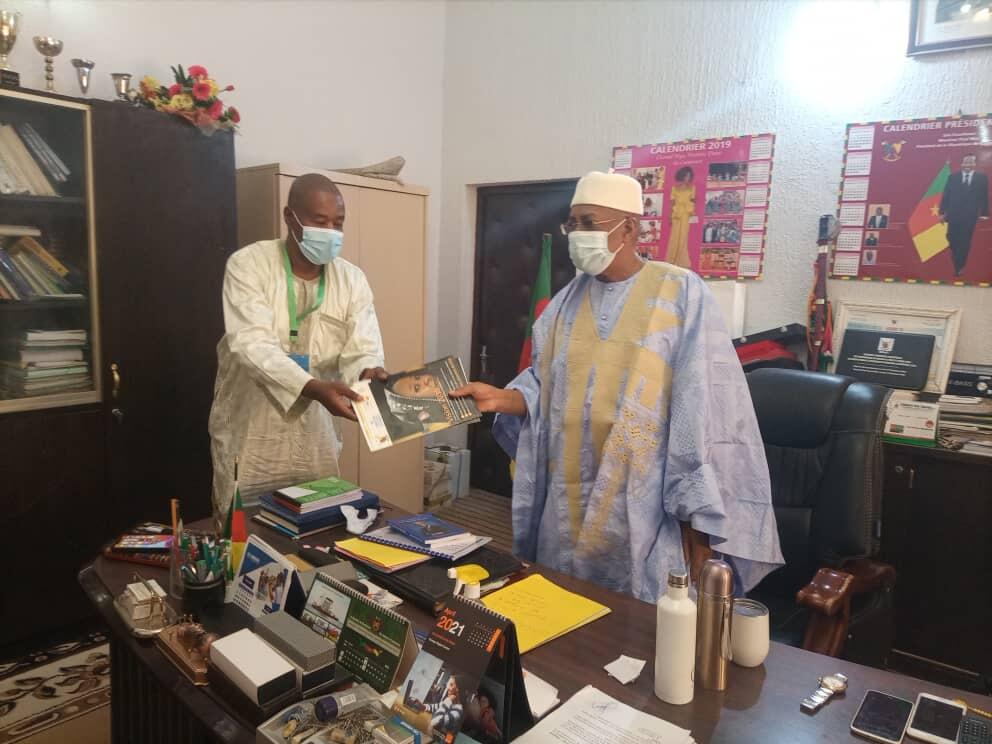Following the audience granted by the Governor of the Far North Region of Cameroon to the platform's coordination team on April 5 in prelude to the 3rd Lake Chad Basin Governors' Forum, the coordination of the Lake Chad Basin platform carried out on April 20, 2021, advocacy meetings with religious and traditional leaders in Maroua. On the side of the religious and traditional leaders, there was the paramount chief of Maroua His Majesty Bakari Bouba, the imam of the central mosque of the city Cheikh Mamoudou Mal Bakari and the vicar general of the Diocese of Maroua-Mokolo Monsignor Gilbert Damba Wana representing the bishop. And the delegation of the UNFPA Coordination Platform was led by the coordinator Mr. Ada Pouye accompanied by Samuel Sawalda communication specialist and Etienne Anakeu Djoumessi in charge of Monitoring and Evaluation.
The aim was, on behalf of the Regional Director for Central and West Africa, Mr. Mabingue Ngom and the Resident Representative in Cameroon of UNFPA Mrs. Siti Batoul Oussein, to present the Coordination Platform and the roadmap for strengthening engagement and community mobilisation of religious and traditional leaders. Indeed, the pillar relating to the commitment of religious and traditional leaders carried by Niger, constitutes an essential pillar of the platform. Religious and traditional leaders who have strong community roots throughout the Lake Chad Basin are actually a lever for community resilience. It is to strengthen their commitment that UNFPA has helped to set up an association bringing them together, the next meeting of which is planned in Niger because of its experience in this area. Last year, these same religious leaders went to the Far-North of Cameroon for the needs of sharing experience with those in the country.

During discussions with the chief, the coordinator of the Platform, among other things, pleaded for a strengthened commitment of traditional leaders from the Far North of Cameroon to advance the transformation agenda. His Majesty Bakari Bouba expressed his full support and pledged to be "UNFPA ambassador to other traditional leaders across the region". The other point of discussions between the two parties was the situation of unemployment and poverty in the area; a situation which requires concerted action, thus the need to capture the dividend of an essentially young population as well as consolidate cross-border activities. The important role of the pillar relating to young people that Cameroon carries was discussed as well, notably the organization in Maroua of the first ever Advisory Youth Forum in Cameroon last year.
With the imam of the central mosque of Maroua, the second lap of the day, the issue of transformation and change in the behavior of the faithful was also discussed. In an environment where religious teachings significantly influence social norms, Imam Cheikh Mamoudou Mal Bakari promised "to be an actor and vector of transformation". He intends to consult his colleagues in the region to agree on the terms of their support in the field, and their contribution to the platform.
This same promise was also made by the vicar general of the Diocese of Maroua-Mokolo to the Platform team, Monsignor Gilbert Damba Wana, for whom `` the church cannot be isolated from issues affecting human capital '' '. For him, "the priorities of UNFPA are those of the Catholic Church in Maroua-Mokolo where the high fertility and birth rate is not accompanied by a consequent programme".
It therefore emerges from the discussions that there is a convergence of vision and mission between what UNFPA envisages, through the Platform, and religious and traditional leaders in Maroua. On behalf of the Regional Director and the Resident Representative of UNFPA, the coordinator of the Platform thanked and expressed his satisfaction on the essential role of traditional and religious leaders as well `` commitment to move the agenda the transformation agenda''.


